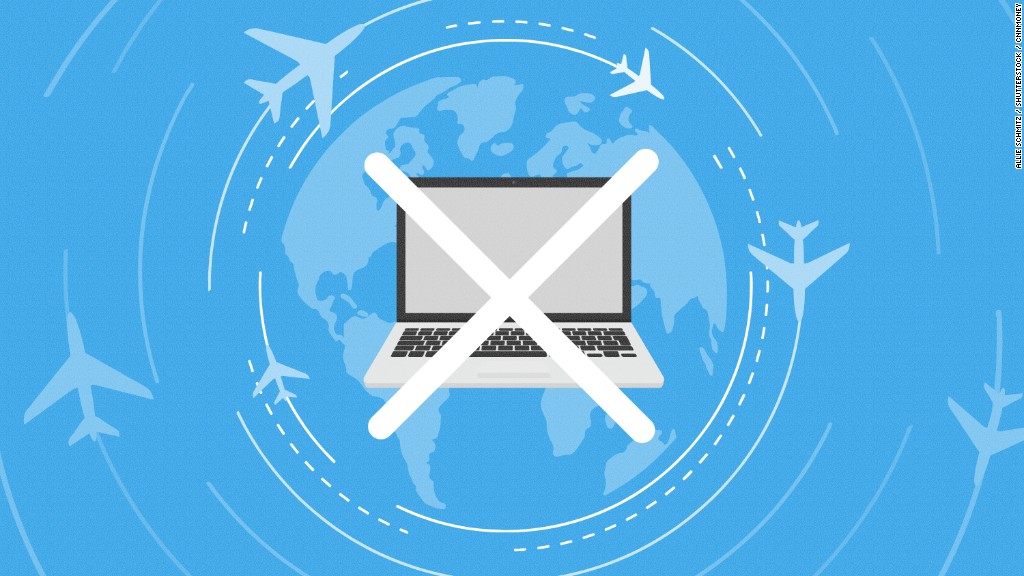
The leader of a group that represents the world's major airlines just blasted the new laptop restrictions put in place by the United States and the United Kingdom.
The countries last week banned electronic devices larger than a cell phone aboard flights that originate in some airports across the Middle East and North Africa. The moves aimed to counter attempts by terrorists to get explosive devices on planes.
But Alexandre de Juniac, head of the International Air Transport Association, said Tuesday that the bans weren't an appropriate solution and should be overturned.
"These measures have to be taken in full collaboration with the industry," de Juniac told CNNMoney's Richard Quest. "We know how to protect passengers and goods against threats. What we want is to collaborate with public authorities, with governments, to find the appropriate measure."
Related: Airline electronics ban: What you need to know
In addition, de Juniac questioned why the United States and the United Kingdom don't include the same airports in their laptop bans.
"How can laptops be secure in the cabin on some flights and not others," he said, "especially on flights originating at a common airport?"
He also warned the bans could hurt the airlines.
"It is clear that any ban targeting a country or an airport has significant negative consequences on bookings for the affected airlines," de Junaic told Quest.
He pointed to a drop in bookings in countries that were included in President Trump's travel ban and said he believes the new rules about electronics will have a similar impact on certain airlines.
The airlines most likely to be affected are those that fly direct to the US from the affected airports. Among them are EgyptAir, Emirates Airline, and Etihad Airways.
Related: Airlines try to ease laptop ban headache for passengers
Some powerful voices have claimed the ban is at least partially motivated by business interests.
Sultan Al Qassemi, a prominent Emirati commentator, wrote in an article last week that he has "no doubt that a significant reason behind the electronic ban is to stifle competition from Gulf airlines, and to encourage U.S. bound passengers to fly on American carriers."
The U.S. Department of Homeland Security has denied that protectionism had anything to do with the ban.
--CNNMoney's Jethro Mullen and Mark Thompson contributed to this report.

